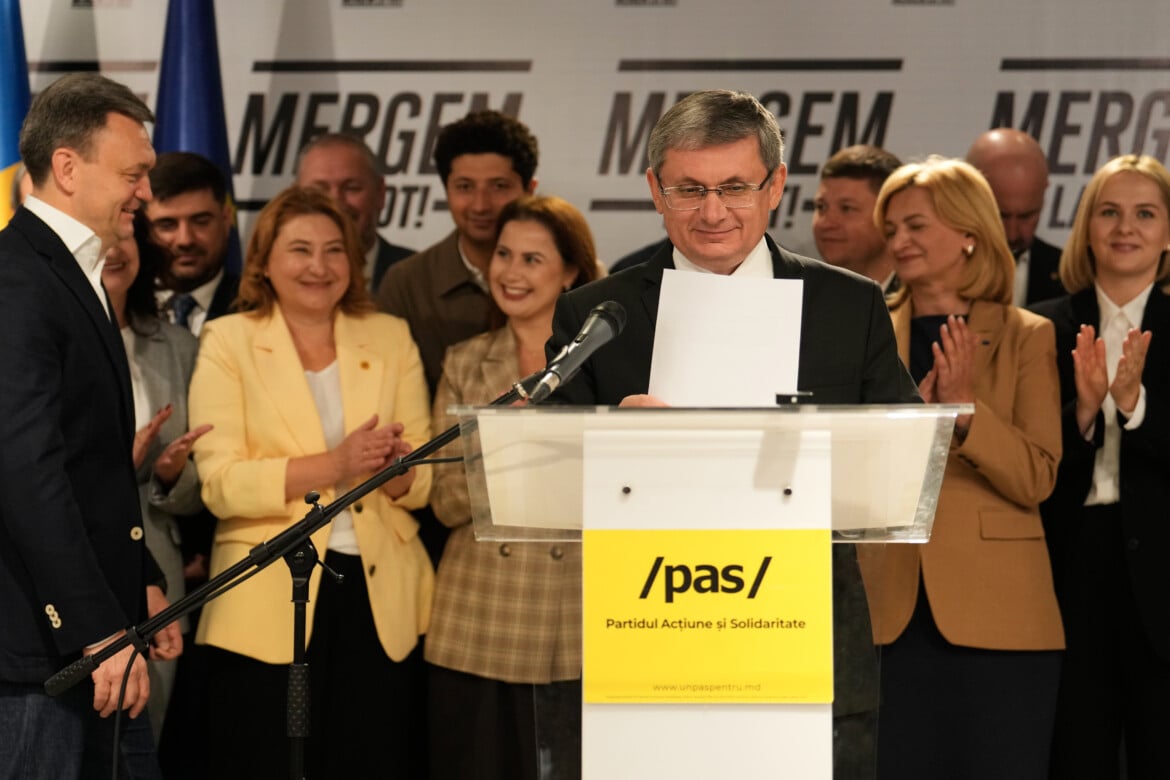Analysis
Moldova voters send a clear pro-European message with Maia Sandu victory
Dodon alleged an atmosphere of “hysteria and fear” created by the government, which he claimed prevented citizens from freely expressing their preferences.

Divided but determined, Moldova’s electorate has delivered a clear reconfirmation of the mandate of its pro-European government. With 50.20% of the vote (over 700,000 ballots), the Party of Action and Solidarity (PAS) of incumbent President Maia Sandu won an absolute majority in parliament with 55 out of 101 seats. The result puts it well ahead of the Patriotic Bloc, a pro-Russian alliance of socialist Igor Dodon and communist Vladimir Voronin (both former presidents), which finished with 24.18%.
Also crossing the electoral threshold were the Alternative coalition led by Chișinău mayor Ion Ceban (7.96%); Our Party, led by Sandu’s former presidential rival Renato Usatii (6.20%), whose platform is more “neutralist”; and, in a surprise result, Vasile Costiuc’s Democracy at Home party (5.62%), which advocates for the reunification of Moldova and Romania.
These percentages are broadly comparable to those from the EU membership referendum a year ago, in which just over half the population voted in favor. This suggests that the electoral base for Maia Sandu and her party remains solid, satisfied with the path taken toward a decisive break from Russia’s sphere of influence, combined with hopes for a strong economic comeback and improved institutional stability.
Just as then, the most striking contrasts in the results reflect long-standing geographical and social divides. While the diaspora in Western countries was the driving force behind PAS’s victory, the Patriotic Bloc won decisively in Gagauzia, an autonomous region with strong Turkish and Russian influences. The pro-Russian bloc also won, albeit more narrowly, in the de facto independent state of Transnistria, where, however, only 12,000 of the 380,000 eligible voters were able to cast a ballot.
The pro-European victory comes with controversy over the exclusion of several parties from the race – two of them just 48 hours before polls opened – and the difficulty of voting in areas with a traditionally different political orientation. In addition to logistical problems in Transnistria, the Moldovan diaspora in Russia had access to only two polling stations.
On the other hand, journalistic and judicial investigations have revealed that a number of opposition figures allegedly used illicit methods to secure support and benefited from the backing of Ilan Shor, a former politician and oligarch who fled to Russia and was found responsible for the “grand theft” of approximately $1 billion from the country’s banks in 2014. Furthermore, as President Sandu herself has charged, the election campaign was marred by Moscow-linked disinformation and propaganda operations on social media.
Unsurprisingly, in this climate of mutual distrust, representatives of the Patriotic Bloc gathered at the parliament on Monday at noon to contest the results, a protest announced before the vote count had even begun. Dodon alleged an atmosphere of “hysteria and fear” created by the government, which he claimed prevented citizens from freely expressing their preferences.
In his victory speech, PAS president Igor Grosu suggested that those who were at the PB protest had been paid to attend. The election, he said, represented the “victory of the Moldovan people,” who had succeeded in defeating the “war” being waged by the Kremlin against their democracy. With this mandate, the executive will now feel empowered to proceed as quickly as possible toward European integration (subject to Brussels’ approval) and, potentially, to cement its support by tackling corruption, including within the political scene itself.
Originally published at https://ilmanifesto.it/moldavia-vittoria-netta-degli-europeisti-di-maia-sandu on 2025-09-30
